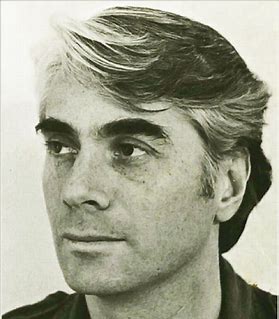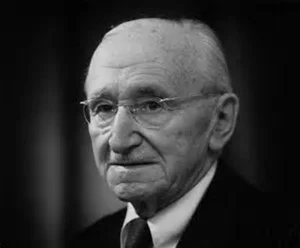“Is there really someone who, searching for a group of wise and sensitive persons to regulate him for his own good, would choose that group of people that constitute the membership of both houses of Congress?” — political philosopher Robert Nozick, author of Anarchy, State and Utopia.
Read MoreFranklin on Character
“Be always at war with your vices, at peace with your neighbors, and let each New Year find you a better person" — American patriot and statesman Benjamin Franklin in Poor Richard’s Almanack.
Read MoreGarrison on Moderation
“I am aware that many object to the severity of my language; but is there not cause for severity? I will be as harsh as truth, and as uncompromising as justice. On this subject, I do not wish to think, or to speak, or write, with moderation. No! no! Tell a man whose house is on fire to give a moderate alarm; tell him to moderately rescue his wife from the hands of the ravisher; tell the mother to gradually extricate her babe from the fire into which it has fallen;—but urge me not to use moderation in a cause like the present I am in earnest. I will not equivocate. I will not excuse. I will not retreat a single inch. AND I WILL BE HEARD!” — abolitionist William Lloyd Garrison in The Liberator, 1831.
Read MoreTocqueville on Liberty
“Even despots accept the excellence of liberty. The simple truth is that they wish to keep it for themselves and promote the idea that no one else is at all worthy of it. Thus, our opinion of liberty does not reveal our differences but the relative value which we place on our fellow man. We can state with conviction, therefore, that a man's support for absolute government is in direct proportion to the contempt he feels for his country” — French philosopher and historian Alexis de Tocqueville in L'Ancien Régime et la Révolution, 1858.
Read MoreRand on The Ultimate Minority
“Remember also that the smallest minority on earth is the individual. Those who deny individual rights, cannot claim to be defenders of minorities” — Ayn Rand in “Capitalism: The Unknown Ideal.”
Read MoreCleveland on Taxation
“When more of the people's sustenance is exacted through the form of taxation than is necessary to meet the just obligations of government and expenses of its economical administration, such exaction becomes ruthless extortion and a violation of the fundamental principles of free government” — Grover Cleveland, 22nd and 24th U.S. president, in his Second Annual Message (December 1886).
Read MoreReagan on Politics
“Politics is supposed to be the second oldest profession. I have come to realize that it bears a very close resemblance to the first” — Ronald Reagan, Remarks at a business conference in Los Angeles (2 March 1977).
Read More
Williams on Socialism
“This is why socialism is evil. It employs evil means, coercion or taking the property of one person, to accomplish good ends, helping one's fellow man. Helping one's fellow man in need, by reaching into one's own pockets, is a laudable and praiseworthy goal. Doing the same through coercion and reaching into another's pockets has no redeeming features and is worthy of condemnation” — economist Walter Williams in “Evil Concealed by Money” 19 November 2008.
Read MoreBastiat on the State
“The State is the great fiction through which everyone endeavors to live at the expense of everyone else” — French economist and statesman Frederic Bastiat. For more on him, see https://bit.ly/29chc3p.
Read MorePaine on Power-Seekers
“Men who look upon themselves born to reign, and others to obey, soon grow insolent; selected from the rest of mankind their minds are early poisoned by importance; and the world they act in differs so materially from the world at large, that they have but little opportunity of knowing its true interest, and when they succeed to the government are frequently the most ignorant and unfit of any throughout the dominions” — American patriot Thomas Paine in “Common Sense (1776).
Read MorePaterson on America
“Whoever is fortunate enough to be an American citizen came into the greatest inheritance man has ever enjoyed. He has had the benefit of every heroic and intellectual effort men have made for many thousands of years, realized at last. If Americans should now turn back, submit again to slavery, it would be a betrayal so base the human race might better perish” — Isabel Paterson, philosopher and author of “The God of the Machine.”
Read MoreSowell on Education
“One of the painful signs of years of dumbed-down education is how many people are unable to make a coherent argument. They can vent their emotions, question other people's motives, make bold assertions, repeat slogans--anything except reason" -- economist Thomas Sowell.
Read MoreDouglass on agitation
“The whole history of the progress of human liberty shows that all concessions yet made to her august claims, have been born of earnest struggle. The conflict has been exciting, agitating, all-absorbing, and for the time being, putting all other tumults to silence. It must do this or it does nothing. If there is no struggle, there is no progress. Those who profess to favor freedom, and yet depreciate agitation, are men who want crops without plowing up the ground. They want rain without thunder and lightning. They want the ocean without the awful roar of its many waters. This struggle may be a moral one; or it may be a physical one; or it may be both moral and physical; but it must be a struggle. Power concedes nothing without a demand. It never did and it never will. Find out just what any people will quietly submit to, and you have found out the exact amount of injustice and wrong which will be imposed upon them; and these will continue till they are resisted with either words or blows, or with both. The limits of tyrants are prescribed by the endurance of those whom they oppress” — abolitionist Frederick Douglass in a speech on August 3, 1857.
Read MoreOrwell on political division
“The real division is not between conservatives and revolutionaries but between authoritarians and libertarians” — “Animal Farm” and “1984” author George Orwell in a Letter to Malcolm Muggeridge (4 December 1948).
Read More
Madison on Eroding Liberty
“Since the general civilization of mankind, I believe there are more instances of the abridgment of the freedom of the people by gradual and silent encroachments of those in power, than by violent and sudden usurpations; but, on a candid examination of history, we shall find that turbulence, violence, and abuse of power, by the majority trampling on the rights of the minority, have produced factions and commotions, which, in republics, have, more frequently than any other cause, produced despotism. If we go over the whole history of ancient and modern republics, we shall find their destruction to have generally resulted from those causes” — 4th American president and principal figure in the writing of the Constitution James Madison, in a Speech at the Virginia Convention to ratify the Federal Constitution (6 June 1788).
Read More
Lane on the "New Deal"
One thing I hate about the New Deal is that it is killing what, to me, is the American pioneering spirit. I simply do not know what to tell my own boys, leaving school and confronting this new world whose ideal is Security and whose practice is dependence upon government instead of upon one’s self.... All the old character-values seem simply insane from a practical point of view; the self-reliant, the independent, the courageous man is penalized from every direction” — journalist and novelist Rose Wilder Lane in her Journal entry of April 15, 1937.
Read More
Burke on Liberty and Morality
“Men are qualified for civil liberty in exact proportion to their disposition to put moral chains upon their own appetites, — in proportion as their love to justice is above their rapacity,—in proportion as their soundness and sobriety of understanding is above their vanity and presumption,—in proportion as they are more disposed to listen to the counsels of the wise and good, in preference to the flattery of knaves. Society cannot exist, unless a controlling power upon will and appetite be placed somewhere; and the less of it there is within, the more there must be without. It is ordained in the eternal constitution of things, that men of intemperate minds cannot be free. Their passions forge their fetters" — Political philosopher and statesman Edmund Burke in a Letter to a Member of the National Assembly (1791).
Read MoreMises on socialism
“A man who chooses between drinking a glass of milk and a glass of a solution of potassium cyanide does not choose between two beverages; he chooses between life and death. A society that chooses between capitalism and socialism does not choose between two social systems; it chooses between social cooperation and the disintegration of society. Socialism is not an alternative to capitalism; it is an alternative to any system under which men can live as human beings” — Austrian economist Ludwig von Mises in “Human Action.”
Read MoreHayek on Economics
“The curious task of economics is to demonstrate to men how little they really know about what they imagine they can design” — Austrian economist, political philosopher and Nobel laureate F.A. Hayek, in “The Fatal Conceit.”
Read MoreChodorov on History
"The imperviousness of economic law to political law is shown in this historic fact: In the long run every State collapses, frequently disappears altogether and becomes an archeological curio—every collapse of which we have ancient evidence was preceded by the same course of events. The State, in its insatiable lust for power, increasingly intensified its encroachments on the economy of the nation, causing a consequent decline of interest in production, until at long last the subsistence level was reached and not enough above that was produced to maintain the State in the condition to which it had been accustomed. It was not economically able to meet the strain of some immediate circumstance like war, and succumbed. Preceding that event, the economy of Society, on which State power rests, had deteriorated, and with that deterioration came a letdown in moral and cultural values; men 'did not care.’ That is, Society collapsed and drew the State down with it" — from Chapter One: Economics Versus Politics in libertarian thinker Frank Chodorov's The Rise and Fall of Society.
Read More



















